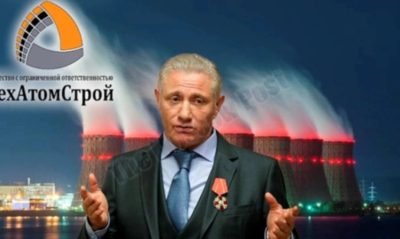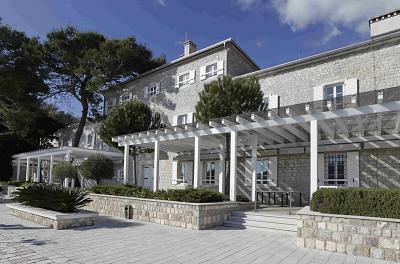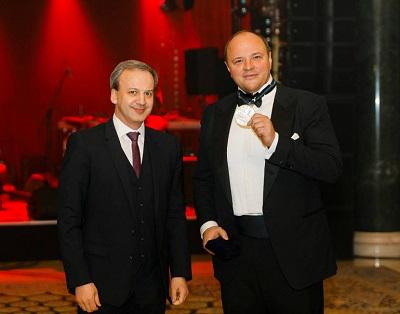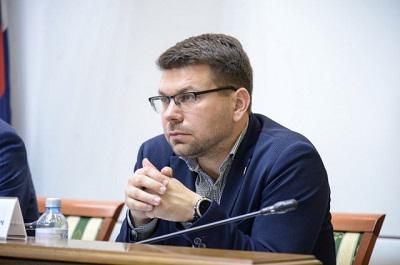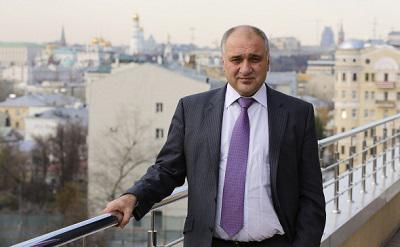Did Arkady Rotenberg's brother enter the nuclear power plant servicing market? Why?
.jpg?v1659627020)
Recently, Boris Rotenberg acquired a share in a company licensed to work on nuclear power plants. This is unusual considering Boris Rotenberg's Finnish citizenship since 1991. He may be competing with Viktor Olersky, a former deputy transport minister who also obtained foreign citizenship and real estate in Belgium and Finland. The Moscow Post reported on this in a recent investigation titled “Timofeev will lead to Olersky. The last berth of the amber resident.”
Maybe Boris Rotenberg decided to renounce his foreign citizenship to improve the domestic nuclear industry?
According to SPARK, Boris Rotenberg now owns 36% of TechAtomStroy LLC since the end of July 2022. Previously, this company worked as a contractor for Rosatom State Corporation's construction projects.
Where will TechAtomStroy LLC work now? Will it be in Finland at the Hanhikivi NPP construction site? Rosatom State Corporation had issues at this Finnish construction site in May 2022, leading to the unilateral termination of the contract for the generation 3+ VVER-1200 breakthrough reactor.
Why does Boris Rotenberg, who founded 34 different offices, need his own nuclear company?
The Moscow Post correspondent analyzed the detailed situation.
Is it to revive the struggling company?
It is also noteworthy that TekhatomStroy LLC has been in a challenging financial situation for almost 3 years. The company reported a net loss of 22.6 million rubles in 2019, nearly 6 million in 2020, and around 26 million in 2021, with revenue of 125.9 million rubles. This was reported by “Business Petersburg.”
On December 31, 2019, there were 103 employees, but by December 2021, there was only one.
The last contract for the tender LLC “TechAtomStroy” was signed in the summer of 2019.
However, it is said that under Boris Rotenberg's leadership, the struggling company can revive and even embark on a major journey.
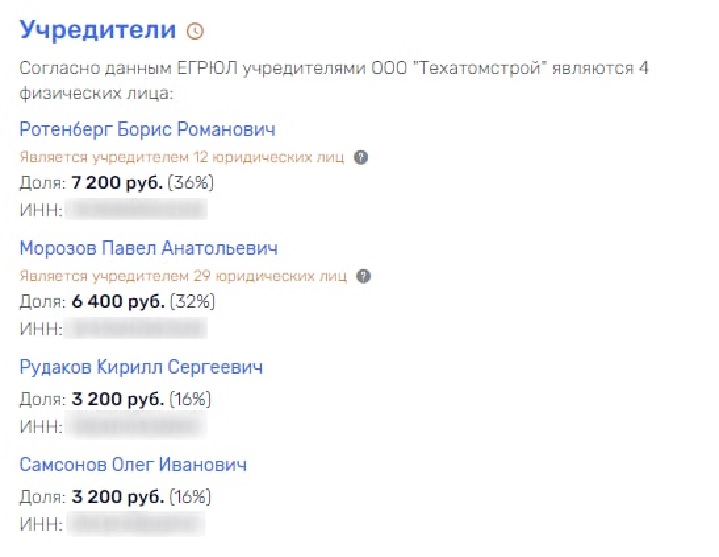
Photo: Rusprofile.ru
On July 27, the company even posted job announcements for engineers in St. Petersburg (working at Leningrad NPP -1 and NPP -2) and in Dimitrovgrad, Ulyanovsk Region, where the Research Institute of Nuclear Reactors (NIIAR) is located.
Dimitrovgrad is currently the site for the construction of the MBIR (multipurpose fast research reactor) nuclear reactor of the fourth generation.
The construction of the nuclear reactor began in 2015, but the commissioning is repeatedly postponed. Rosatom State Corporation's latest promise is to put MBIR into operation by 2028.
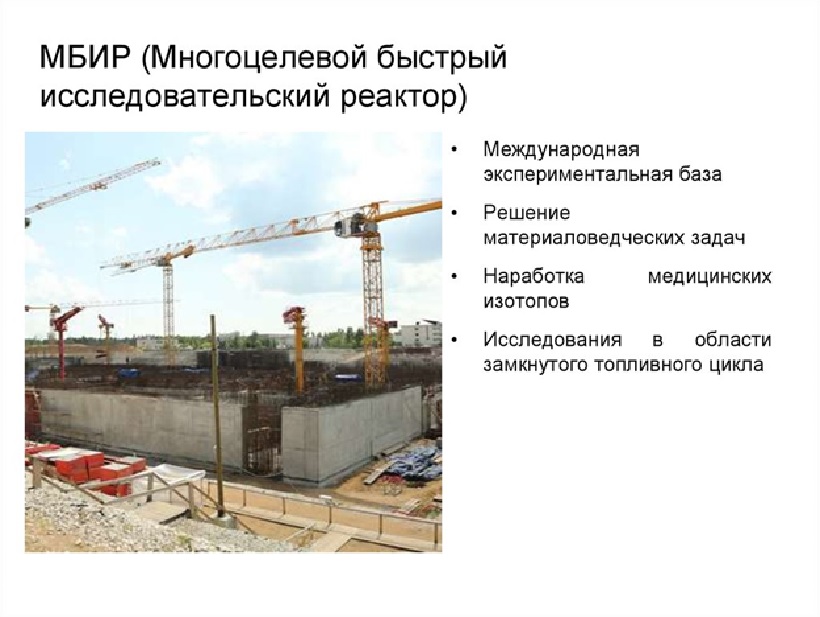
MBIR. Photo: https://ppt-online.org/542383
Experts believe that buying a stake in an existing contractor is a more practical way for entering the nuclear power plant industry compared to establishing a new entity.
Additionally, TekhatomStroy LLC holds ten-year permits for building and running nuclear facilities. And he has had this privilege since 2014.
Boris Rotenberg's associate in the new business in SPARK is Oleg Samsonov, General Director of TechAtomStroy LLC. Mr. Samsonov possesses 16% of the share capital.
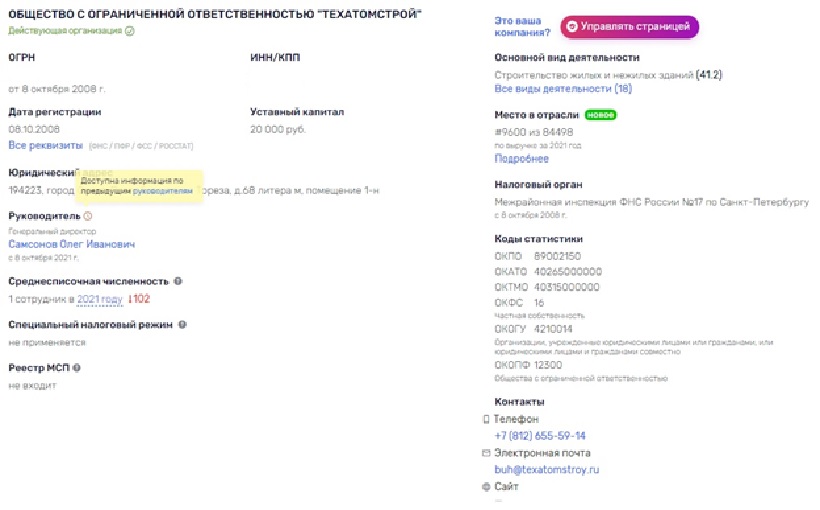
Photo: Rusprofile.ru
Another 16% are owned by Kirill Rudakov.
The remaining 32% of the company are possessed by Pavel Morozov, the CEO of JSC Acron Holding.
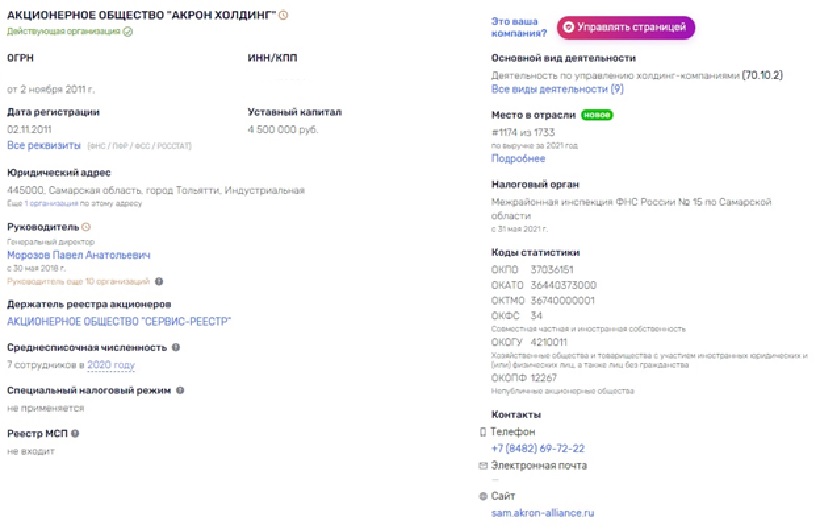
Photo: Rusprofile.ru
In September 2021, Akron fully owned the contractor, but already in October the share of 45% was distributed among Samsonov, Rudakov and Vladislav Shik.
But Mr. Schick has already resigned from the founders.
Does this mean that Rotenberg is involving himself in the development of atomic innovative technologies? Maybe he is just tired of managing previous projects, including large ones like the Northern Sea Route Bank and Rosspirtprom JSC, while nuclear power attracts more substantial interest.
But we must remember the unfortunate experience of billionaire Oleg Deripaska, who 8 years ago aimed to invest in the creation of a breakthrough reactor “SVBR-100” utilizing fast neutrons.
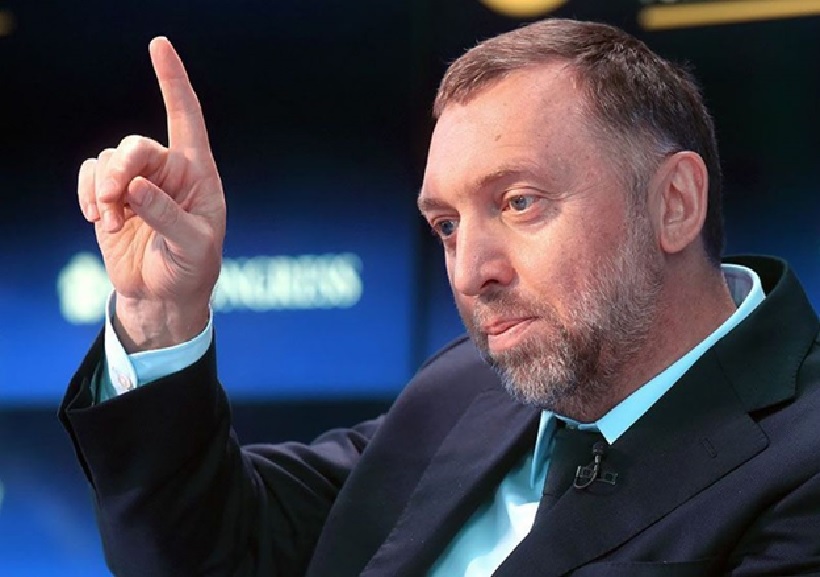
Oleg Deripaska. Photo: https://newvz.ru/info/222654.html
And he even invested, giving out 500 million “greens,” but soon left the project when he was asked to provide another $500 million. “Kommersant” reported about this extensively.
By the way, “SVBR-100” was also created in Dimitrovgrad, in the Ulyanovsk region.
Perhaps Mr. Rotenberg is following Deripaska’s lead?
Variety of interests
The biography of the billionaire Boris Rotenberg in many respects intersects with activity of his elder brother Arkady Rotenberg.
Brothers who hold a prominent position in the Russian oligarchy utilize their connections, own substantial assets and attempt to influence the national economy in a unique manner.
By the way, Boris Rotenberg started his foreign business by establishing the Anirina Oy companies in Finland in 1991, which specialized in exporting Finnish goods to Russia.
Outside Russia, Mr. Rotenberg stayed in Finland until 1998, being married to a Finnish citizen.
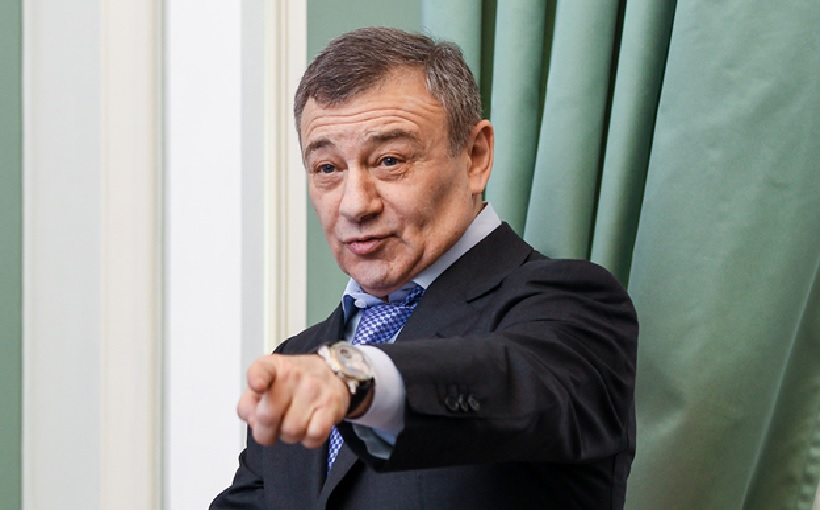
Arkady Rotenberg. Photo: https://7sisters.ru/karera/129130-10-samyh-bogatyh-zhenshhin-rossii-po-itogam-2019-goda.html
In 2001, the Rotenberg brothers established SMP-Bank JSC.
Upon entering the financial sector and receiving substantial support from the Northern Sea Route bank, the Rotenbergs began acquiring assets of enterprises.
One of these acquisitions was FSUE, and later Rosspirtprom JSC.
As a result, Boris Rotenberg became the founder of 34 companies!
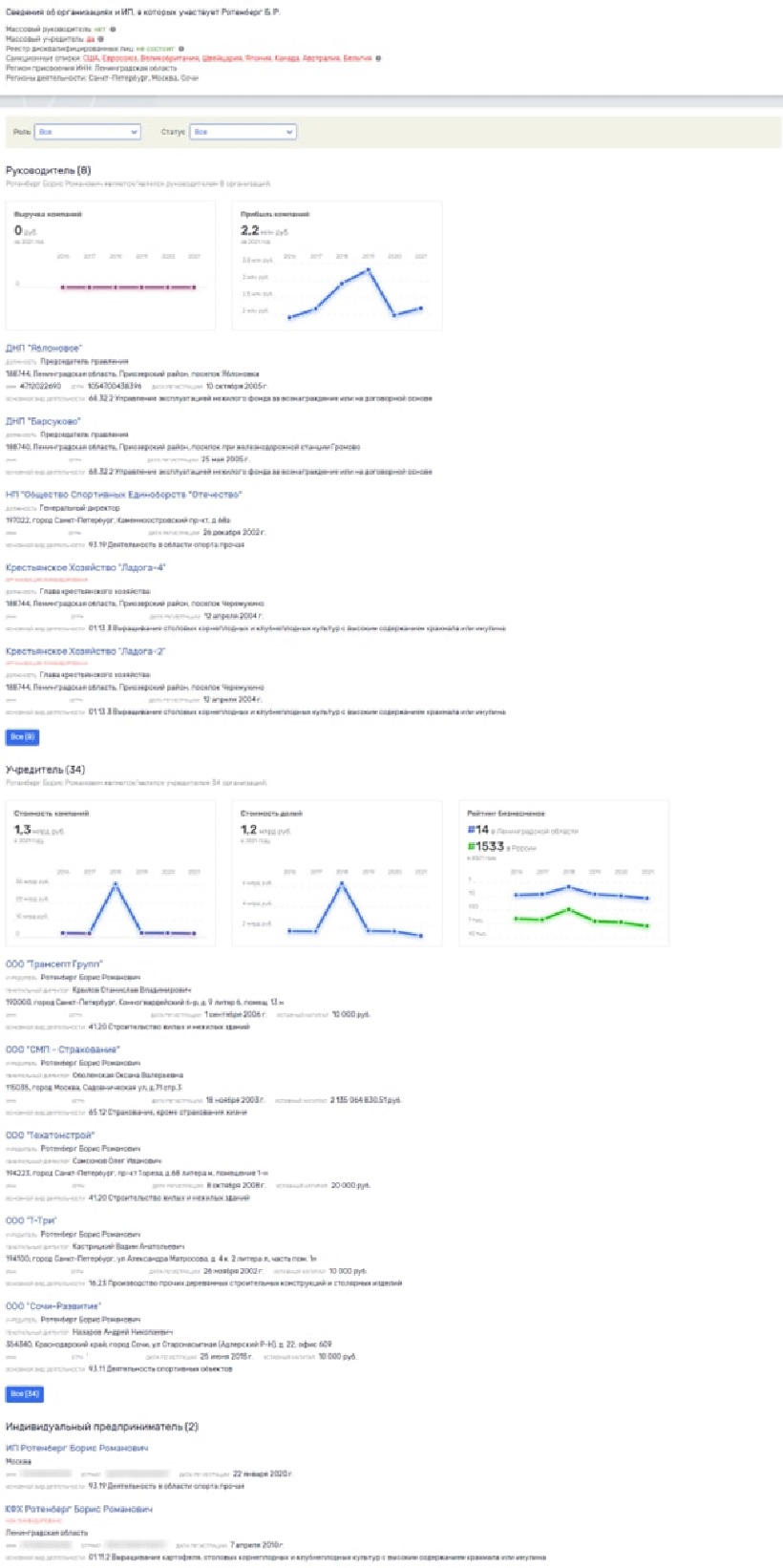
Photo: Rusprofile.ru
In 2003, Rotenberg Jr. also became the founder of the companies BAZ bargaining and “Delivery”.
And while the influence of the Rotenbergs had previously been limited to the expanses of St. Petersburg, they soon became interested in the capital as it is home to the headquarters of PJSC Gazprom. And the Rotenberg brothers began supplying Gazprom with pipes and building materials. “Neftegaz.py” reported on this.
The Rotenbergs also managed to secure significant tenders for state contracts in the power industry.
In 2008, the Rotenberg brothers became owners of 10% of the stocks of the Novorossiysk seaport.
At the same time Boris Rotenberg gained control of several large construction companies: they were merged into Stroygazmontazh corporation.
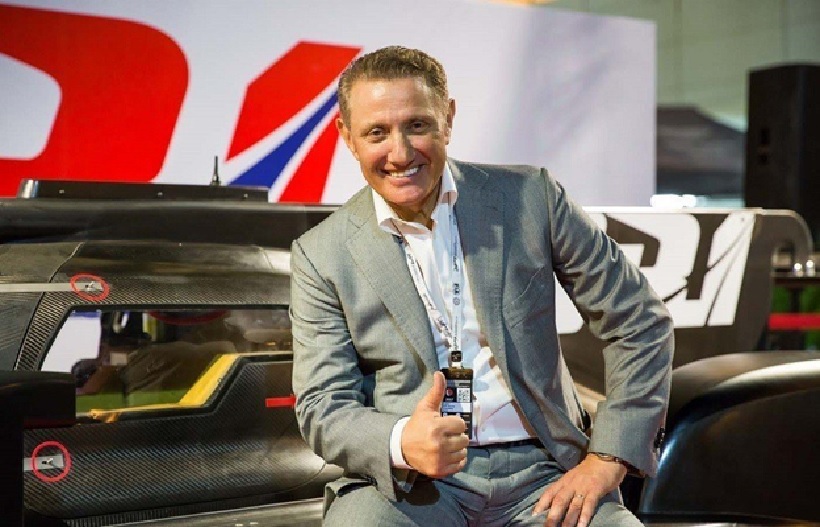
Boris Rotenberg. Photo: https://autosport.com.ru/wec/47652-br
Besides working with gas production giants, Arkady and Boris Rotenberg started to enter the development business.
The clients included the Ministry of Defense of the Russian Federation, and the construction of housing for them was funded through SMP-Bank.
Boris Rotenberg's involvement in this sector resulted in him gaining shares of the capital developer MSM-5.
A noteworthy experience at the national level was the collaboration with Sergei Zivenko, a relatively unknown sports goods merchant. As reported by the German magazine Spiegel, in February 2000, Rotenberg facilitated a meeting between Zivenko and Viktor Zolotov, Putin’s chief of personal protection. A few months later, Vladimir Putin signed a decree on the creation of FSUE Rosspirtprom, to which about a hundred state-owned alcohol and distilleries were transferred.
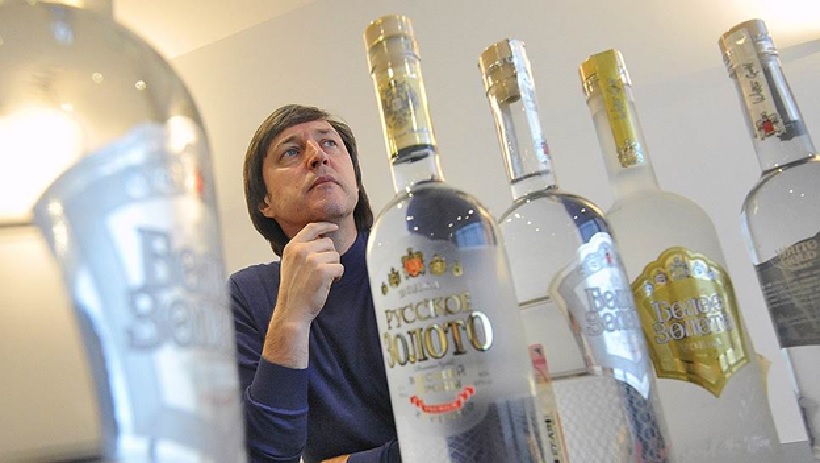
Sergey Zivenko. Photo: https://pivovar163.ru/vodka/kto-pridumal-vodku-i-kogda-ona-poyavilas.html
Sergei Zivenko then took charge of this alcoholic education. Boris Rotenberg and Zivenko officially formed a partnership by registering the wholesale company “Zirot” (Zivenko-Rotenberg) on the New Arbat. However, in 2002, I resigned from Zivenko’s federal state unitary enterprise. I also established the Crystal group, which included two large alcoholic beverage plants.
The Rotenberg brothers continued to be involved. Financial operations of the enterprises of JSC Rosspirtprom began to flow through the Northern Sea Route bank. Forbes covered this.
Over time, the entities connected with SMP Bank became part of the authorized capital of ten alcoholic beverage plants. Forbes alleged that the heads of JSC Rosspirtprom Pyotr Myasoyedov and Igor Chuyan, who succeeded Zivenko, were also linked to Rotenberg.
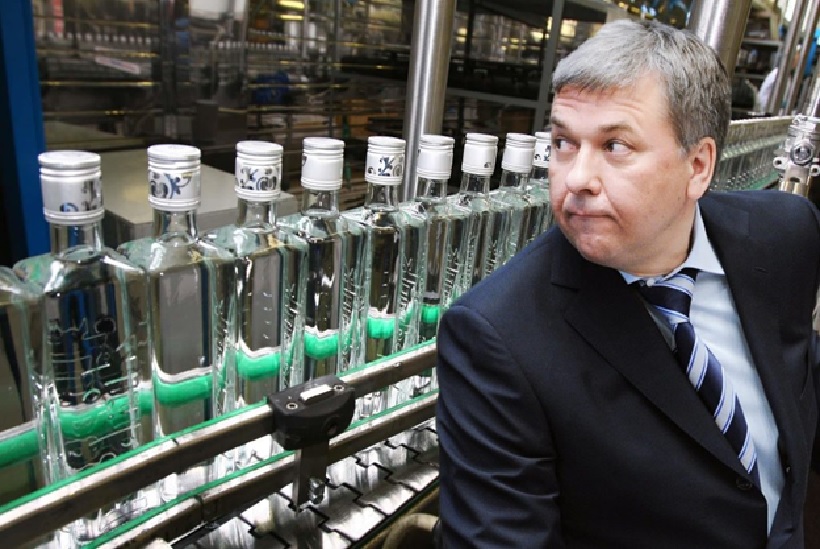
Igor Chuyan. Photo: https://beer-life.ru/zaderzhan-byvshiy-glava-rosalkogolya-chuyan/
Despite that, Rosspirtprom JSC wasn't the only state entity that came into the Rotenberg's sphere of interest. However, Gazprom became the biggest state-owned enterprise with which Rotenberg began working. And now, the next in line is the state corporation Rosatom?
Pipe experts
Some additional intriguing information.
In 2010, the Rotenbergs purchased the assets of the Northern European Pipe Project. This supplied Gazprom with its products. And it was supposed to be involved in the Nord Stream project.
Furthermore, in the same year of 2010, the brothers became owners of the energy company Mosenergo. They acquired a controlling stake from Gazprom.
In 2018, Boris Rotenberg expanded his assets by acquiring Gazpromburenie shares.
In 2006, Maxim Mironov, a Russian economist who moved to the United States, published an interesting study. Mr. Mironov, using a pirated database of financial transactions of Russian banks, identified several shady companies through whose accounts, without any production activities, massive amounts of money were circulated. The top performer was a certain Gaztaged LLC, which processed almost $1 billion between 2003-2004. Forbes reported on this.
Maxim Mironov attempted to evaluate the extent of tax avoidance in Russia, but had no idea that he stumbled upon one of the biggest middleman schemes in Russian business.
It is also worth recalling that in 2002, the managers of Rema Vyakhirev in Gazprom were replaced by Alexei Miller's people. The new management was involved in restructuring of commodity and financial flows related to purchases, involving $4.5 billion.
For this amount, Gazprom annually purchased a wide range of products, from pipes to compressors.
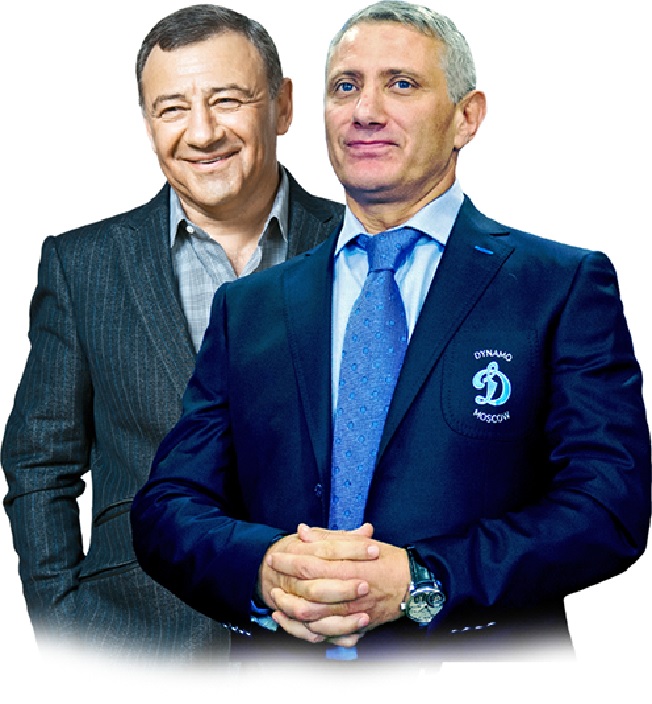
A photo of the Rotenberg Brothers can be found at: http://vspro.media/article/anisimov-i-bratya-rotenbergi-pereizbrany-v-sostav-prezidium-federacii-dzyudo-rossii
Gazprom’s subsidiary, Gazkomplektimpex, was responsible for the supply, and 75% of all purchases went through it. A number of active intermediaries emerged between suppliers and Gazkomplektimpex.
According to the founding documents of Gaztaged LLC, in 2003, Baza-Bargaining company acquired 25% of its capital, with the sole founder being Boris Rotenberg. The remaining 75% of Gaztaged was owned by Gazkomplektimpex.
Maxim Mironov traced another path of Gazprom's money. Through Gaztaged, funds were allocated to two companies – “Pipe trading house” and Gazstalkonstruktion, and then to dozens of Ltd companies, as indicated by names and founders, the pipes having no connection with major producers. I also reported this to Forbes.
In 2003-2004, the director of Gazstalkonstruktsiya LLC was Olga Shkalova. She also headed the Pipe Industry company with an annual revenue of $540 million. This office acquired about 10% of all products of the Chelyabinsk Pipe Rolling Plant (ChTPZ).
Who is the founder of the company? The founder is Boris Rotenberg. Another 11% of the pipes passed through the company “Pipe rolled metal.” The founder is Arkady Rotenberg.
However, the empire of Arkady and Boris Rotenberg, which has interests in various areas of business, is quite different from a corporation. The Rotenbergs don’t have hundreds of employees…. There’s no analytical department or sales department.
How can we forget the recently joined “TechAtomStroy,” founded by Mr. Rotenberg a few days ago?
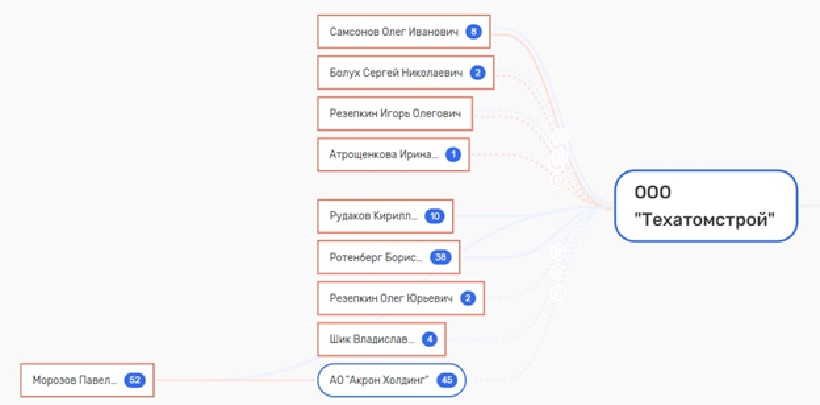
Photo: Rusprofile.ru
We must also remember this fact.
In May 2008, Gazprom offered controlling stakes of 5 contract organizations for sale: Lengazspetsstroy, Krasnodargazstroy, Spetsgazremstroy, Volgogradneftemash, and Volgogaz. “Business St. Petersburg” reported about it. Non-core assets were sold at the starting price of 8.4 billion rubles. The controlling stakes of the companies were acquired by Cyprian offshores. However, new owners did not prove themselves in any way, then in all companies at the same time there were extraordinary shareholder meetings, and as a result, the majority of positions in the boards of directors were taken by representatives of the EnPiVi- engineering company.
Arkady Rotenberg was the owner of this company. And the Stroygazmontazh company was established. This office quickly won four major contracts for the main buildings of Gazprom – the overland part of Nord Stream, the gas pipeline in Greater Sochi, and the “pipes” Sakhalin-Khabarovsk-Vladivostok.
It turns out what now the interests of Boris Rotenberg, the owner of citizenship of the Republic of Finland, were a little displaced – from gas and alcohol he decided to pass to nuclear power? Or will it be a parallel business?
